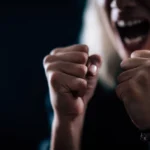Key Takeaways
- Gambling relapse is a common part of the recovery process, often triggered by emotional states, stress, life changes, and environmental factors such as the proximity to gambling venues and online gambling platforms.
- It is essential to recognize the warning signs of a gambling relapse, such as social withdrawal, increased secrecy, financial difficulties due to gambling, neglect of responsibilities, heightened tolerance, and a preoccupation with gambling.
- Preventing gambling relapse requires a combination of strategies including building a strong support network, developing healthy coping mechanisms, establishing financial boundaries, and revising treatment plans after a relapse.
Understanding the Nature of Gambling Relapse
Relapse is a common occurrence in the recovery journey from gambling addiction, symbolizing the ongoing challenge many individuals face. Effectively managing gambling relapse necessitates a thorough understanding of its nature. Often, individuals abstain and then return to gambling in pursuit of a win, a cycle known as the ‘merry-go-round’ of relapse. This cycle is typically propelled by a cognitive-behavioral sequence where the consequences of gambling lead the gambler back into the cycle.
Emotions, stress, and significant life changes, along with the pursuit of the ‘mythical win’, can all serve as triggers for a gambling relapse. The first stride towards breaking free from the cycle is to identify these triggers. The next step is learning how to manage these triggers, which will be discussed later in this post.
Emotional Triggers
Managing a gambling relapse begins with identifying emotional triggers. Some common triggers include:
- Boredom
- Loneliness
- Anxiety
- Grief
- Worries
- Depression
The COVID-19 pandemic, for instance, has heightened feelings of loneliness and boredom, serving as significant emotional triggers for many. Recognizing individual triggers is a crucial step in preventing a relapse.
Effectively dealing with these triggers is essential in curbing the urge to gamble. It could involve activities like engaging in a new hobby, getting involved in a community project, or even seeking professional help. The goal is to find healthy outlets for these emotions, reducing the likelihood of relapse.
Stress and Life Changes
Stress is another common trigger for gambling relapses. Individuals often seek relief from stressful situations like financial pressures through gambling. Major life changes, such as job loss or a breakup, can also trigger a relapse.
The risk of relapse can be mitigated by identifying these triggers and cultivating healthy coping mechanisms, especially since relapse occurs when these factors are not addressed.
Environmental Factors
Environmental factors also play a significant role in gambling relapses. Proximity to gambling venues or exposure to gambling advertisements can encourage ongoing gambling behaviors, leading to relapse. Moreover, the convenience and easy access to gambling through apps and online platforms serve as significant environmental factors, increasing the risk of relapse.
Awareness of these environmental triggers enables proactive management of the same.
Recognizing the Warning Signs of Gambling Relapse
Timely intervention hinges on the identification of warning signs of a gambling relapse. Physical manifestations of relapse may include revisiting gambling establishments or spending time with friends who gamble. Psychological changes, such as increased cravings to gamble or feelings of restlessness when trying to cut down or stop gambling, can also be strong warning signs.
Moreover, a return to addictive patterns, such as drug addiction or gambling, may be indicated by the following signs:
- Social withdrawal and isolation, preferring to stay away from family or friends to hide gambling behavior
- Increased secrecy and lying about gambling activities
- Financial difficulties and borrowing money to fund gambling
- Neglecting responsibilities and obligations in order to gamble
- Feeling restless or irritable when not gambling
- Failed attempts to cut back or stop gambling
Vigilance towards these signs is of paramount importance, as immediate action upon their appearance could forestall a full-blown relapse.
Preoccupation with Gambling
One key indicator of a potential relapse is when an individual is constantly preoccupied with thoughts of gambling or planning future gambling activities. This could manifest as frequent talks about gambling, spending an excessive amount of time on gambling websites, or expressing a strong desire to gamble.
Constant ruminations about gambling habits can also signal a potential relapse. Immediate help should be sought if you or a loved one find yourselves incessantly preoccupied with problem gambling and gambling addictions. This could involve reaching out to a trusted friend or family member, joining a support group, or consulting a mental health professional.
Increased Tolerance
Increased tolerance is a condition often encountered in the progression of gambling addiction. During gambling activities, the continuous release of dopamine can lead the body to develop a tolerance to the pleasurable feelings associated with gambling. As tolerance builds, individuals may gamble more frequently or wager larger amounts to experience the desired excitement.
An increase in gambling behavior as a result of tolerance may signal a possible relapse into gambling addiction. Should you notice this behavior in yourself or a loved one, immediate help is required to prevent a full-blown relapse and avoid more gambling.
Neglecting Responsibilities
Failing to meet work obligations or losing employment as a result of gambling is a significant warning sign of a gambling relapse. If you or a loved one is neglecting responsibilities to gamble, this signals a gambling problem and could potentially lead to becoming problem gamblers.
At this stage, direct confrontation of the issue and seeking help is vital.
Strategies for Preventing Gambling Relapse
Preventing a gambling relapse involves more than just willpower. It requires a combination of strategies including:
- Building a strong support network
- Developing healthy coping mechanisms
- Establishing financial boundaries
- Setting both short-term and long-term goals
These strategies can provide direction and better focus efforts on reducing or giving up gambling.
Engaging in new hobbies can act as a distraction from gambling, occupying the time previously devoted to gambling activities and thereby reducing the urge to gamble. Another effective strategy is delaying the decision to gamble, which can provide a critical timeframe to gain control over impulses and resist the urge to relapse.
Building a Strong Support Network
A robust support network is instrumental in preventing isolation during a gambling relapse, offering trusted individuals to confide in during challenging times. Sharing struggles with temptation within a support system can provide necessary assistance during challenging times, making it crucial to seek support.
Here are some benefits of having a support network:
- It provides a safe space to discuss gambling problems without fear of judgment.
- It helps alleviate the stress of keeping issues secret.
- It maintains focus on recovery.
Self-forgiveness and garnering support from family and friends necessitates an open discussion about a gambling relapse. Professional support, including family and couple’s therapy, plays a critical role in expressing feelings, working to restore trust, and reconnecting to positive relationship aspects. Support groups such as Gamblers Anonymous offer accountability and guidance in strengthening the recovery process.
Exploring additional support strategies like art therapy and holistic therapies may be necessary to reinforce sobriety strategies after relapse.
Developing Healthy Coping Mechanisms
Stress management through relaxation techniques like yoga, muscular relaxation, and regular meditation can alleviate the urge to gamble. Engaging in physical activities and hobbies, such as cooking, painting, or exercising, aid in managing moods in healthier ways and can provide a fulfilling alternative to gambling.
Setting daily intentions and goals, maintaining a gratitude list, and substituting gambling with other activities are effective in keeping focus on recovery. Procrastination, surprisingly, can weaken immediate gambling urges. By delaying the decision to gamble, you allow yourself the time to reassess the situation and make a more informed decision.
Establishing Financial Boundaries
To safeguard family finances from the repercussions of a gambling relapse, consultation with a credit counselor or financial advisor is vital. Restricting access to family funds can be an effective measure to reduce the impact of a gambling relapse. It can help prevent financial instability and protect the family’s well-being. Lowering financial risk factors such as avoiding the use of credit cards, not taking out loans, and not carrying large sums of money can support control over gambling impulses.
Preventing gambling relapse may require handing over financial control, at least temporarily, to avoid triggers associated with gambling activities and to halt gambling-related financial losses. This strategy can be a significant step in overcoming the urge to gamble and focusing on recovery.







